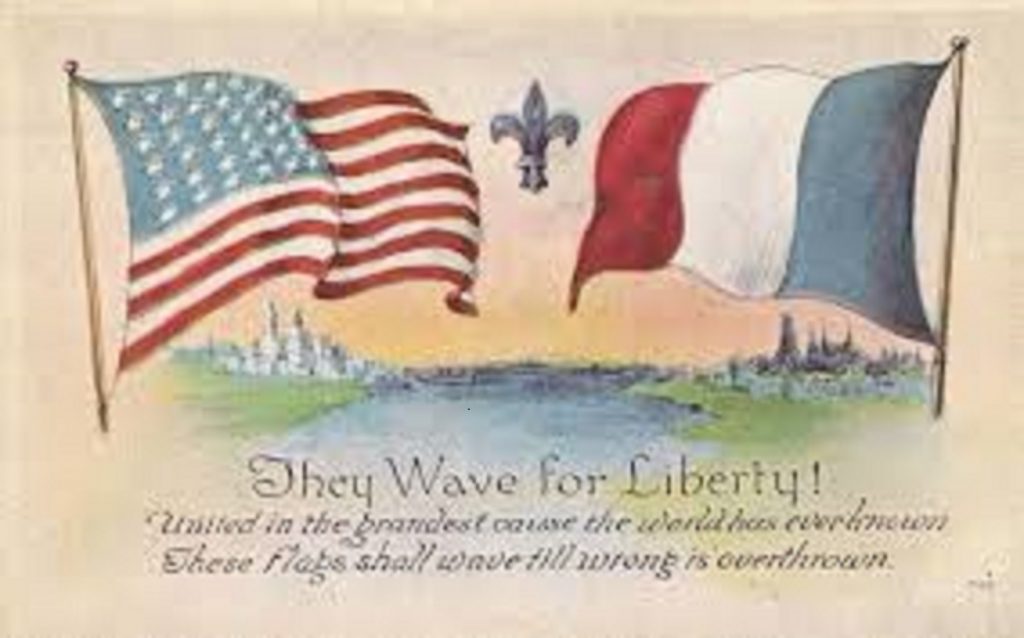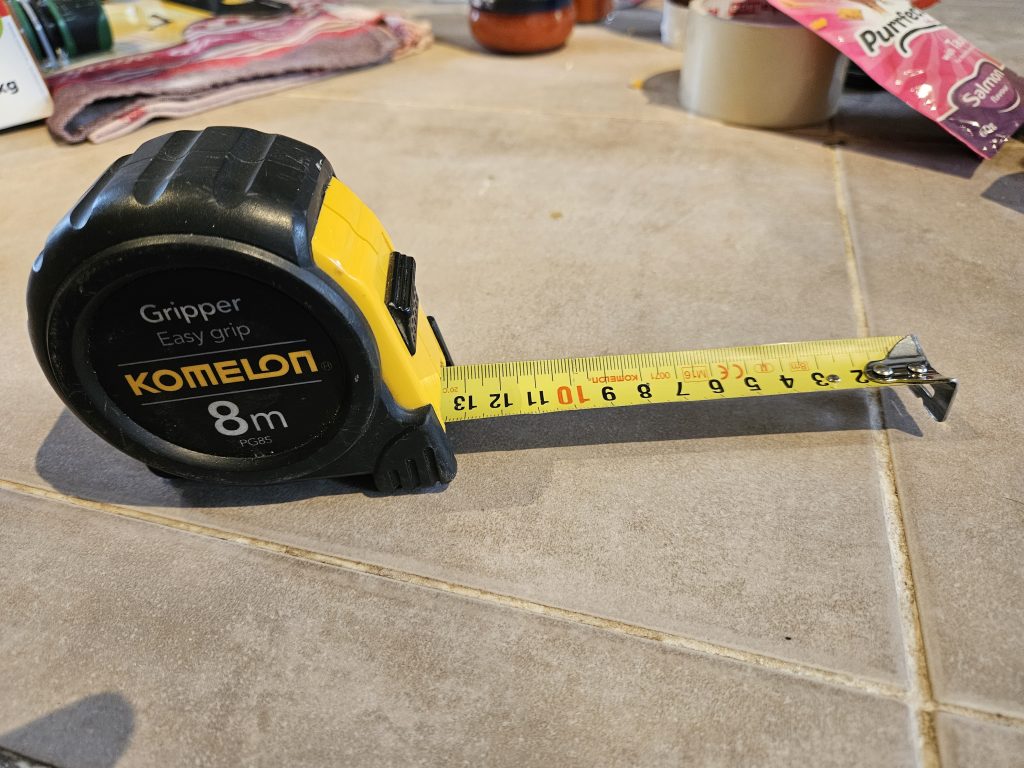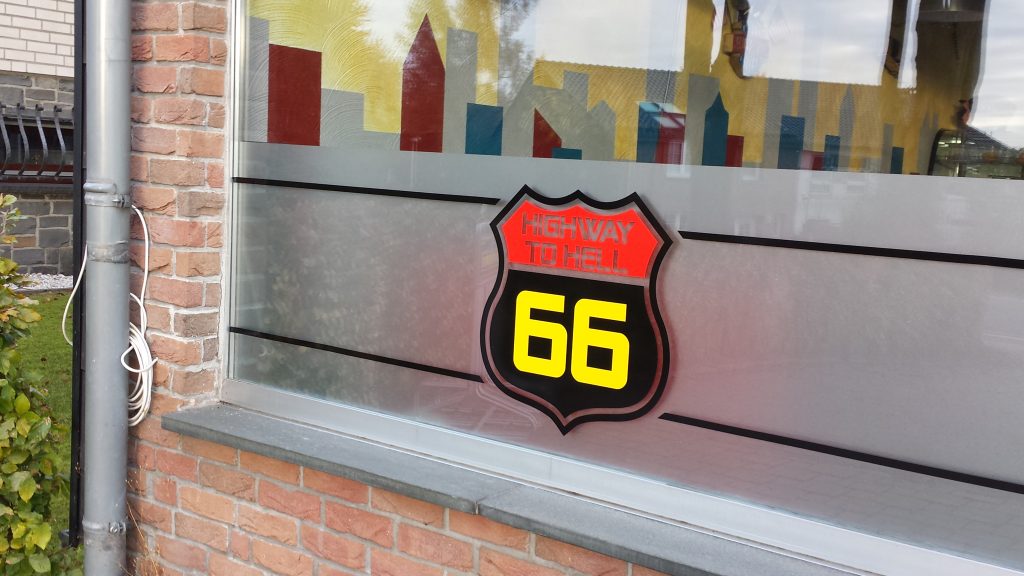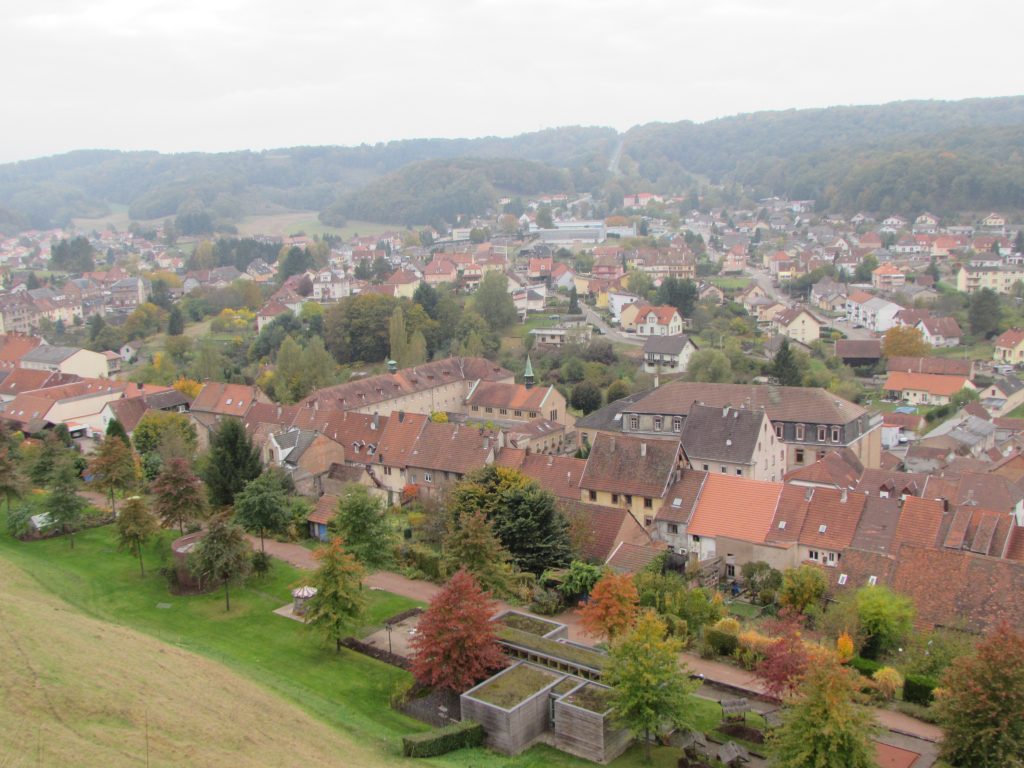
One could write a book about the similarities and differences between the two.
I have been asked if I ever wrote an article specifically about our move to France, which is, after months, still in process. Our worldly goods are stuck in Rotterdam since the 6th of September, and I hope to see them soon. Also, Tami is in France only as a visitor until she retires or finds a job that will let her work remotely from here. Meanwhile, I paint. The downstairs is finished except for the laundry room. Right now I’m working on Tami’s office. It’s nice paint. I have no plans to paint my studio/office, but I’ll most likely be buying another tub of paint. It’s good paint, but we have a lot of walls.
So, maybe as much as ten years ago, maybe not quite so long, but certainly more than six years ago, we decided that we’d like to be able to see Europe without paying $2k a pop each to visit annually. Well, I can see Europe by opening my eyes in the morning, and for 5€ I can get to Bordeaux or Poitiers plus most points in between on a regional train. It’s cheap because I’m older than dirt, thus showing that there are advantages to everything. For a bit more money I can take a train or plane to almost anywhere in Europe. The train will probably require me to get to Paris, but there are several regional international airports closer than the big city. I’d love to return to Barcelona and eat some more arroz negro con mariscos at Restaurante Ferran, for example. And that really was it, originally. We did not want to get away from the United States, we wanted to see Europe. But Europe is a big place (a bigger market than the USA, in fact) and just where should we go?
Germany? We both have ancestors there. My grandfather Nick was born in Germany (before and now his birthplace is in France) but that doesn’t help. The United Kingdom is nice, really, but it’s very expensive to move to and we can’t afford it. Ditto for Ireland, although my McDaniels ancestors from County Kerry might be happy to see me. We have visited Italy and Portugal and Spain, all lovely countries, but given the way climate is going, liable to be too hot for us to want to live in. We don’t know enough about Eastern Europe, and it costs more to get there from the US. Switzerland is where 48% of my DNA is from (Bern, since you asked) but since neither of us is a billionaire, no way we could afford to move there.
France has one distinct advantage, and that is tax reciprocity with the US. That means that each country credits whatever tax you paid the other one against what you owe it. Income tax is higher in France at the moment, but that’s all we’ll pay. In the UK, and most countries, we’d have to pay our entire tax bill to each country. Ouch! And in the end, that settled it. Six years ago I began studying French every day, and so did Tami. According to a couple of online tests I’ve taken, I’m apparently at a B1 level, which means that I can function okay in day-to-day interactions, so long as the conversation isn’t too advanced. This actually seems true. Six years, folks! French seemed easy at first, because the vocabulary is deceptively easy. That’s because we use so much of it in English. But, watch out. Attend means to wait. To attend is assister, which can also be taken to mean “assist” although I’d probably use “aider” which means, oh, aid.
We took our first property searching trip in the fall of 2019, looked at a few things but mostly did tourist stuff, but we did orient ourselves to where we wanted to buy. We had already checked out Brittany earlier that year, and now we checked out Charente, a “department”, (think US County) in the Southwest of France. Charente is, in fact about a mile south of our house in the department of Vienne. We decided to return in the spring of 2020, burdened only by the knowledge that it can be difficult for an American to get a mortgage in France, for which we can thank IRS reporting rules, apparently. Well, 2020, let’s see, something big came up. Huh. Anyway, while we waited for that to resolve itself, and managed not to die from Covid, we sold a couple of properties we owned in Arizona not too far from the Grand Canyon. We bought them for a song, one could have been put on a credit card (no kidding) and sold them for enough that we’ve had to pay capital gains tax for a couple of years. Lots of capital gains, which meant that we could just buy something, up to a certain value.
So, in the fall of 2021 we got our passes sanitaires, proofs of vaccination in Euro style, and spent three weeks in a very nice B&B in Agudel, outside of Jonzac, again in Charente. Weekdays we looked at houses (but not on Toussaints, 1 Novembre, or Jour d’armisiste, 11 Novembre, because those are national holidays and France is serious about national holidays. And not much on weekends because French Estate Agents don’t work then. For a couple of weeks nothing moved us. Then we saw the house in which I now sit. A candidate! A few days later, we saw another one, and put in an offer on it. Tami called around to tell the other agents non. Imagine her surprise when the response from this seller was “So how much would you pay?” She lowballed them. They took it. And here I sit, as it were. It took four months, one of which is probably our fault, to close the sale. I came here in April of 2022, and was able to stop wearing a mask before I left at the end of June. (You can stay 90 days without a visa, no more.)
Back in Vegas we began getting serious about the move. When I first returned it seemed odd not to say bonjour to everyone, but in fact I don’t think that would go over well with everyone. Last Winter we started packing, ultimately filling 99 boxes (I think, it’s been a while.) And applying for Visas. For that we had to fill in forms online and go for an interview in Los Angeles, which we did. A week or so later our passports came back with visas attached, which is why I am now living in France legally, although an alien. I arrived last May 10th, and haven’t left the country since. I could, of course, go almost anywhere in Europe using my French visa, but, heck, why tour when I can paint? Tami’s employer decided they didn’t want to risk having to pay French taxes, but she now plans to leave them sometime before or right at the end of the year. And then she can come home to all this bright new paint! Yay!







